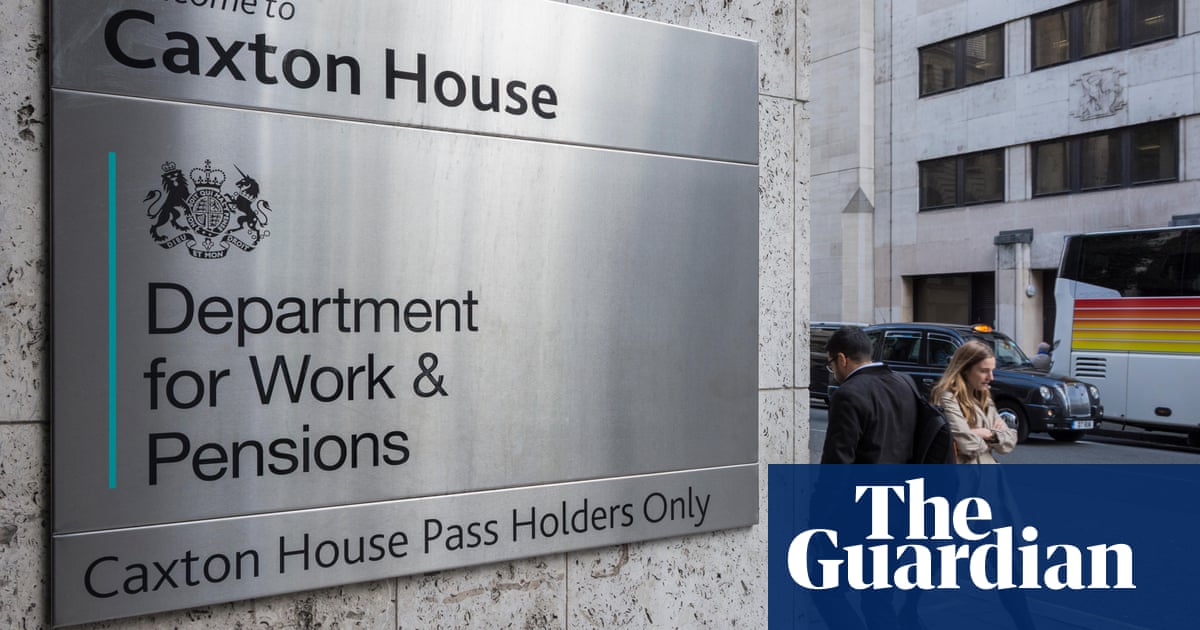
Almost exactly five years ago, Enrico La Rocca was hailed by MPs as a hero, a whistleblower whose tenacity had helped expose profound failures at the heart of the government’s vast benefits agency, resulting in tens of thousands of vulnerable unpaid carers being unfairly fined and prosecuted.
Without La Rocca – who was not named at the time – serious problems with carer’s allowance overpayments may never have come to light, the Commons work and pensions select committee concluded: without him the Department for Work and Pensions (DWP) would never have been persuaded of the “urgent need to act”.
Yet less than a year later the DWP sacked him, the Guardian can reveal – just months after its permanent secretary, Peter Schofield, had assured MPs that La Rocca – an experienced civil servant in the carer’s allowance unit – would be “absolutely” protected for speaking out.
The DWP’s extraordinary treatment of the carer’s allowance whistleblower emerges as ministers face growing scrutiny over their continuing failure to fix those same administrative failings – and growing outrage that five years after the DWP promised to fix carers allowance overpayments very little has changed.
Thousands of carers are still falling foul of the system, incurring debts, ill health, and in some cases a criminal record. MPs and charities this week queued up to call for reform of the carer’s allowance, as carers themselves told harrowing stories of injustices and hardship inflicted on their families by the DWP.
La Rocca was dismissed in May 2020 just as the Covid pandemic was hitting and the DWP was scrambling to mobilise staff to process a sudden avalanche of universal credit claims. At the same time, the carer’s allowance problems quickly fell off the DWP’s agenda, where they have arguably remained.
For years he had raised his concerns about carer’s allowance with his line managers, and through briefings for his trade union, the PCS. His insights were not welcomed, union sources say. By 2018, frustrated that carers were being unfairly prosecuted and fined, he wrote to the then welfare minister, Sarah Newton.
A union official with knowledge of the case said: “Enrico had tried to raise these issues through internal DWP channels, but he hit a brick wall.” La Rocca then wrote with his concerns to the National Audit Office (NAO), and Frank Field, then the chair of the work and pensions select committee.
Field wrote to the NAO in November 2018 asking it to investigate. It was “truly shocking” he wrote, that carers were bearing the brunt of “eye-wateringly large overpayments” as high as £48,000 as a result of “systemic failings or gross incompetence” on the part of the DWP.
La Rocca had warned staffing shortages meant the DWP was failing to properly manage data matching alerts it received identifying potential breaches of carer’s allowance earnings limits. As a result, thousands of carers who worked part-time on top of receiving carer’s allowance inadvertently earned more than they were allowed to, often by just a few pounds.
The subsequent NAO inquiry report in April 2019 found that between 2016 and 2018 the DWP was checking just 12% of earnings breaches. It found two-thirds of carers hit with earnings-related overpayments of more than £2,500 during this time could have avoided running up these huge debts had the unit been staffed adequately.
Field, a veteran poverty campaigner who died this week, was palpably shocked by the overpayments, later accusing the DWP of “shocking ineptitude”. But he lost his seat in the December 2019 general election, the committee was suspended during the pandemic, and political – and arguably DWP interest – in the carer’s allowance waned.
La Rocca, meanwhile, was in trouble after his managers discovered he had written privately to the Crown Prosecution Service (CPS). It is understood he had asked the CPS to ensure the NAO report was made available to the judge in carer’s allowance fraud prosecution cases, to enable the full context of overpayments to be understood.
He had previously raised concerns internally that carers were being unjustly prosecuted for fraud in cases where avoidable DWP administrative failures had meant the overpayments were not spotted early. A key criterion for the DWP referring carers to the CPS is the overpayment owed is more than £5,000.
His union at the time argued unsuccessfully that La Rocca’s actions in writing to the CPS were “part of ongoing whistleblowing action to seek to address a clear and legitimate concern, and that he should have been provided with whistleblower protection and not dismissed”. La Rocca was suspended in February 2020 and dismissed for gross misconduct in May, losing his appeal in June.
The story did not end there. After being shown the door, La Rocca wrote to the chair of the work and pensions select committee, Stephen Timms, to explain what had happened. Timms made representations to ministers to complain. La Rocca’s case was also taken up by the whistleblowing charity Protect. In April 2021 he was reinstated and is understood to be working in another section.
La Rocca declined to comment on his sacking when approached by the Guardian. A DWP spokesperson said it did not comment on staffing matters. They said the DWP was “committed to fairness in the welfare system, with safeguards in place for managing repayments, while protecting the public purse”.
Meanwhile, the overpayments scandal continues. The DWP introduced an automated data-matching system in 2018. By 2023 – the latest figures available – it was checking just 46% of potential earnings breach alerts each month. Last year, there were 34,000 overpayments cases – one in five of carer’s allowance claimants who worked part-time on top of their caring duties – a total that has barely shifted in five years.
One source close to the PCS said La Rocca should never have been sacked: “As the MPs’ praise suggests, he was clearly doing a public service. If he hadn’t been, then why did he get his job back?”












